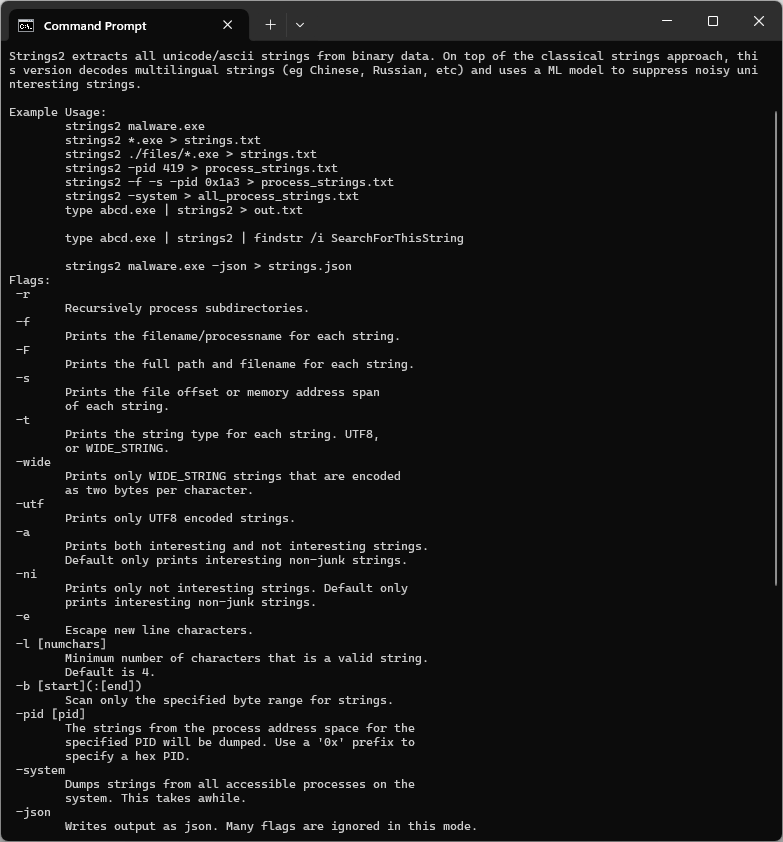
Strings2 is a Windows command-line tool for extracting strings from binary data. On top of the classic Sysinternals strings approach, this tool includes:
- Multi-lingual string extraction, such as Russian, Chinese, etc.
- Machine learning model filters out junk erroneous string extractions to reduce noise.
- String extractions from process memory.
- Recursive and wildcard filename matching.
- Json output option for automation integration. (Also see python module version binary2strings)
I also recommend looking at FLOSS from Mandiant, a cross-platform string extraction solver with a different set of features.
Installation
Download the latest release binary.
Example Usage
Dump all strings from malware.exe to stdout:
strings2 malware.exeDump all strings from all .exe files in the files folder to the file strings.txt:
strings2 ./files/*.exe > strings.txtDump strings from a specific process id, including logging the module name and memory addresses of each match:
strings2 -f -s -pid 0x1a3 > process_strings.txtExtract strings from malware.exe to a json file:
strings2 malware.exe -json > strings.jsonDocumentation
strings2 (options) file_pattern
file_pattern can be a folder or file. Wildcards (*) are supported in the filename parts - e.g., .\files\*.exe.
| Option | Description |
|---|---|
| -r | Recursively process subdirectories. |
| -f | Prints the filename/processname for each string. |
| -F | Prints the full path and filename for each string. |
| -s | Prints the file offset or memory address span of each string. |
| -t | Prints the string type for each string. UTF8, or WIDE_STRING. |
| -wide | Prints only WIDE_STRING strings that are encoded as two bytes per character. |
| -utf | Prints only UTF8 encoded strings. |
| -a | Prints both interesting and not interesting strings. Default only prints interesting non-junk strings. |
| -ni | Prints only not interesting strings. Default only prints interesting non-junk strings. |
| -e | Escape new line characters. |
| -l [num_chars] | Minimum number of characters that is a valid string. Default is 4. |
| -b [start]\(:[end]\) | Scan only the specified byte range for strings. Optionally specify an end offset as well. |
| -pid [pid] | The strings from the process address space for the specified PID will be dumped. Use a '0x' prefix to specify a hex PID. |
| -system | Dumps strings from all accessible processes on the system. This takes awhile. |
| -json | Writes output as json. Many flags are ignored in this mode. |